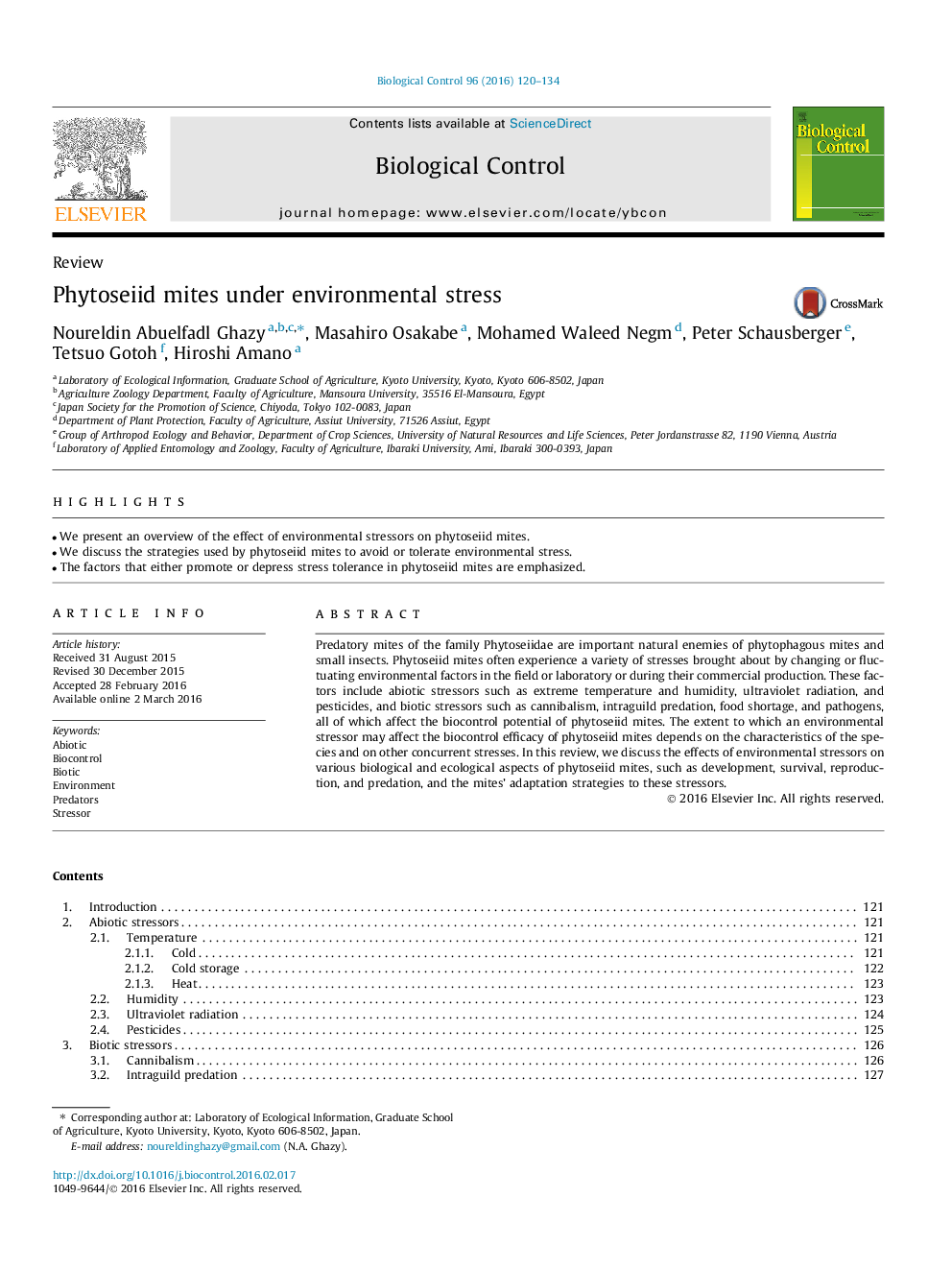| Article ID | Journal | Published Year | Pages | File Type |
|---|---|---|---|---|
| 4503677 | Biological Control | 2016 | 15 Pages |
•We present an overview of the effect of environmental stressors on phytoseiid mites.•We discuss the strategies used by phytoseiid mites to avoid or tolerate environmental stress.•The factors that either promote or depress stress tolerance in phytoseiid mites are emphasized.
Predatory mites of the family Phytoseiidae are important natural enemies of phytophagous mites and small insects. Phytoseiid mites often experience a variety of stresses brought about by changing or fluctuating environmental factors in the field or laboratory or during their commercial production. These factors include abiotic stressors such as extreme temperature and humidity, ultraviolet radiation, and pesticides, and biotic stressors such as cannibalism, intraguild predation, food shortage, and pathogens, all of which affect the biocontrol potential of phytoseiid mites. The extent to which an environmental stressor may affect the biocontrol efficacy of phytoseiid mites depends on the characteristics of the species and on other concurrent stresses. In this review, we discuss the effects of environmental stressors on various biological and ecological aspects of phytoseiid mites, such as development, survival, reproduction, and predation, and the mites’ adaptation strategies to these stressors.
